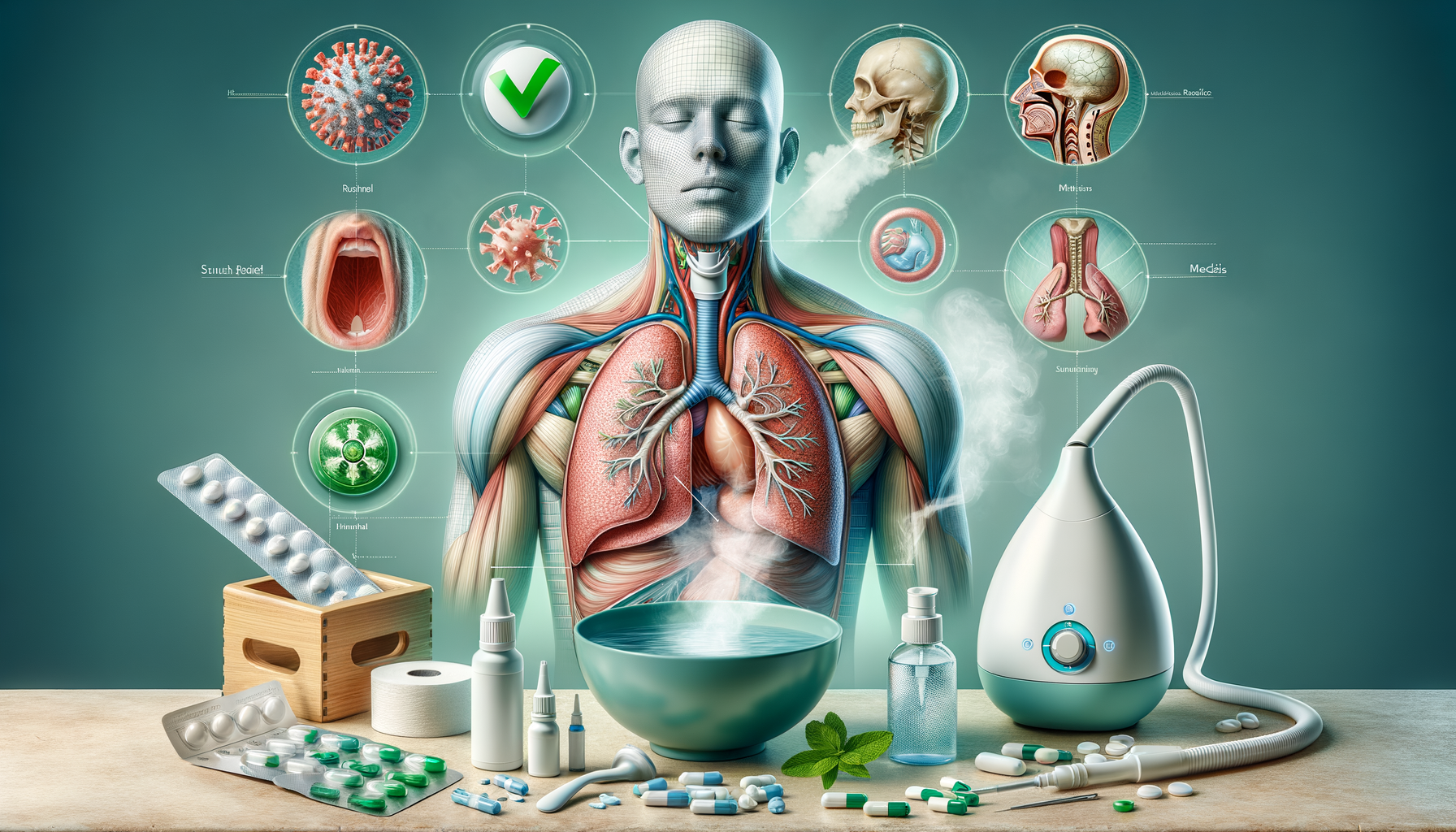Natural Remedies to Ease Sinus Discomfort
Sinus infections, known medically as sinusitis, can be a persistent issue for many, leading to discomfort and a decrease in quality of life. Natural remedies often provide a gentle yet effective means to alleviate symptoms. One popular method is steam inhalation, which helps to moisten the sinus cavities, reducing congestion and easing breathing. Simply inhaling steam from a bowl of hot water or taking a hot shower can provide immediate relief.
Essential oils like eucalyptus and peppermint are also renowned for their decongestant properties. Adding a few drops to the steam inhalation process can enhance its effectiveness. Additionally, staying hydrated is crucial as it helps thin the mucus, making it easier for the body to expel it. Herbal teas, particularly those containing ginger or chamomile, can be soothing and beneficial.
Another natural approach is the use of saline nasal sprays or rinses. These can help clear out mucus and allergens from the nasal passages, reducing inflammation and irritation. Neti pots, which are used to pour a saline solution into one nostril and let it flow out of the other, are a traditional method that many find effective.
Incorporating these natural remedies into your routine can significantly reduce the frequency and severity of sinus infections, offering a holistic approach to sinus health.
Over-the-Counter Solutions for Sinus Relief
For those seeking immediate relief from sinus infections, over-the-counter (OTC) medications can be a practical choice. Decongestants, available in pill or nasal spray form, work by shrinking swollen blood vessels in the nasal passages, thus reducing congestion. However, it is important to use nasal sprays sparingly, as prolonged use can lead to rebound congestion.
Antihistamines are another OTC option, particularly effective for sinusitis caused by allergies. They work by blocking the action of histamine, a substance in the body that causes allergic symptoms. Non-drowsy formulations are available for those who need to maintain alertness during the day.
Pain relievers such as ibuprofen or acetaminophen can help manage the headaches and facial pain often associated with sinus infections. These medications reduce inflammation and provide comfort during the healing process.
While OTC solutions can offer quick relief, it’s essential to follow dosage instructions carefully and consult with a healthcare provider if symptoms persist or worsen.
Diet and Lifestyle Adjustments for Sinus Health
Diet and lifestyle play a significant role in managing and preventing sinus infections. Consuming a balanced diet rich in vitamins and minerals supports the immune system, making the body more resilient against infections. Foods high in vitamin C, such as citrus fruits and leafy greens, are particularly beneficial for boosting immunity.
Spicy foods, like those containing chili peppers or horseradish, can help clear nasal passages by thinning mucus, providing temporary relief from congestion. Incorporating these into meals can be a flavorful way to support sinus health.
Maintaining a clean and allergen-free environment is also crucial. Regularly dusting and vacuuming, using air purifiers, and keeping windows closed during high pollen seasons can minimize exposure to allergens that trigger sinusitis.
Additionally, practicing good sleep hygiene by ensuring adequate rest and maintaining a regular sleep schedule can enhance the body’s ability to fight off infections. Stress management techniques, such as yoga or meditation, can also be beneficial in maintaining overall health and preventing sinus issues.
When to Seek Medical Attention
While many sinus infections can be managed with home remedies and OTC medications, there are instances when medical attention is necessary. If symptoms persist for more than 10 days without improvement, it may indicate a bacterial infection requiring antibiotics. Additionally, if there is a high fever, severe headache, or vision changes, these could be signs of a more serious condition that needs prompt evaluation by a healthcare professional.
Individuals with recurrent sinus infections may benefit from seeing an ear, nose, and throat specialist to determine if there are underlying issues, such as nasal polyps or a deviated septum, that need to be addressed.
In some cases, imaging studies like a CT scan may be recommended to get a clearer picture of the sinus cavities and identify any abnormalities. Early intervention and proper diagnosis are key to preventing complications and ensuring effective treatment.
Summary and Final Thoughts
Sinus infections, while common, can significantly impact daily life if not properly managed. By exploring a combination of natural remedies, OTC solutions, and lifestyle adjustments, individuals can find relief and improve their sinus health. It’s important to listen to your body and seek medical advice when necessary to avoid complications.
Incorporating these strategies not only helps in managing current infections but also plays a role in preventing future occurrences. By prioritizing sinus health, individuals can enjoy a better quality of life with fewer disruptions from sinus-related issues.




Leave a Reply